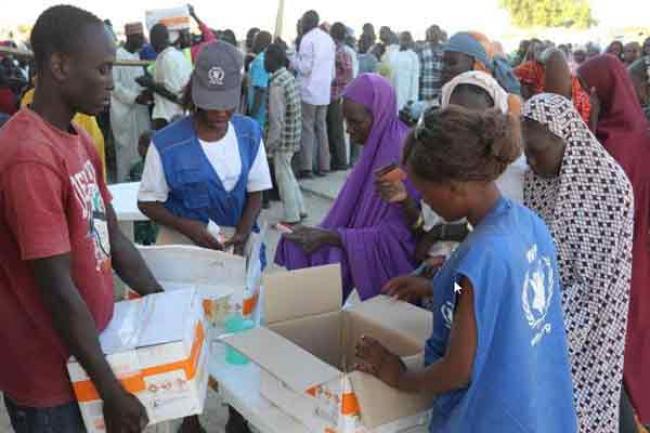Just Earth News 22 Feb 2017

WFP/Amadou Baraze
“If the resources do not arrive in time, one in five children suffering sever acute malnutrition could die,” said Peter Lundberg, the Deputy Humanitarian Coordinator for Nigeria in a press release issued yesterday by the UN Office for the Coordination of Humanitarian Affairs (OCHA).
“The likelihood of a child with severe acute malnutrition surviving is nine times less than a properly nourished child,” he added.
According to OCHA, the eight-year-long conflict has left some 8.5 million people in need of humanitarian assistance in the worst-affected states of Nigeria's north-east. In the coming months, around 5.1 million people will face severe food insecurity in the region, where some 1.8 million people have been displaced and millions are exposed to violence and abuse.
“Food assistance alone will cost $1 million a day to avoid famine in a region where 450,000 children under five will suffer from severe acute malnutrition this year,” said Lundberg. “Sustained and timely financial support is needed to maintain the scale-up in operations desperately needed in the north-east of Nigeria.”
During a recent visit by representatives of 12 donor countries and agencies to Borno state, in the run up to the 24 February Humanitarian Conference on Nigeria and Lake Chad region, they lauded the scale-up of humanitarian operations in the north-east and emphasized the need for more funding, a stance the humanitarian community in Nigeria concurs with.
“We are grateful to our donors who have enabled us scale up the response and appreciate their continued commitment. We look forward to receiving the needed resources to implement the 2017 Humanitarian Response Plan for Nigeria,” Lundberg said.